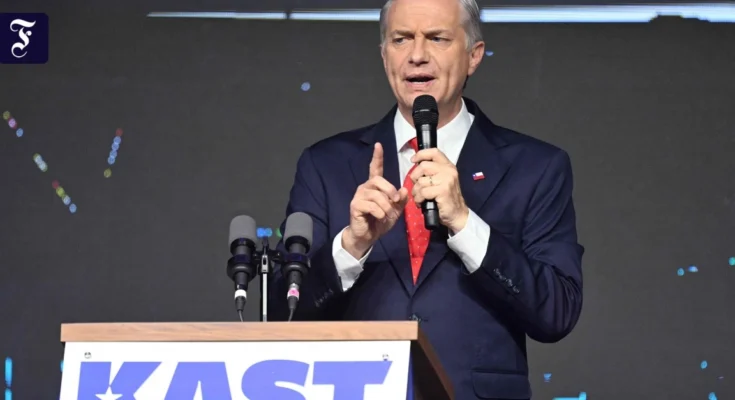According to preliminary preliminary results, left-wing government candidate Jeannette Jara is leading in Chile’s presidential election. After counting more than half of the votes, the result reached 27 percent on Sunday. He is followed by right-wing politician José Antonio Kast with 24 percent. With no sign of an absolute majority for either candidate, both will likely face a runoff election on December 14.
Jara will be the first Chilean Communist Party candidate to advance to the second round. However, pollsters later saw that Kast benefited. They expected conservative forces to support the founding right-wing Republican Party and help him win. Libertarian Congressman Johannes Kaiser announced his support for Kast on Sunday.
Very different priorities
During the election campaign, Jara proposed tightening gun laws, greater technological surveillance of borders and lifting banking secrecy to prosecute organized crime. Kast, on the other hand, wants to take tough action against crime and immigration and has announced the construction of a border wall with moats, the deportation of all undocumented migrants and the deployment of the military in problem areas.
The election campaign was marked by voter concerns about crime and immigration. This is a significant change from previous elections, where people hoped for progressive reforms and a new constitution, which brought President Gabriel Boric to power. The 51-year-old Jara was labor minister under Boric’s government.
New mandatory voting
A total of eight candidates applied for the presidential seat. Unlike previous elections, voting is mandatory for the 15.7 million registered voters.
Part of parliament was also re-elected. The entire 155-member lower house and 23 of the Senate’s 50 seats will be filled. The current ruling left-wing coalition has minorities in both chambers. If the far-right wins the presidency and control of both houses of Congress, it would be the first time since the end of Pinochet’s dictatorship in 1990.
The shift to the right in Chile reflects recent losses experienced by left-wing groups across Latin America and shows increasing momentum for conservative candidates in Colombia, Peru and Brazil.



